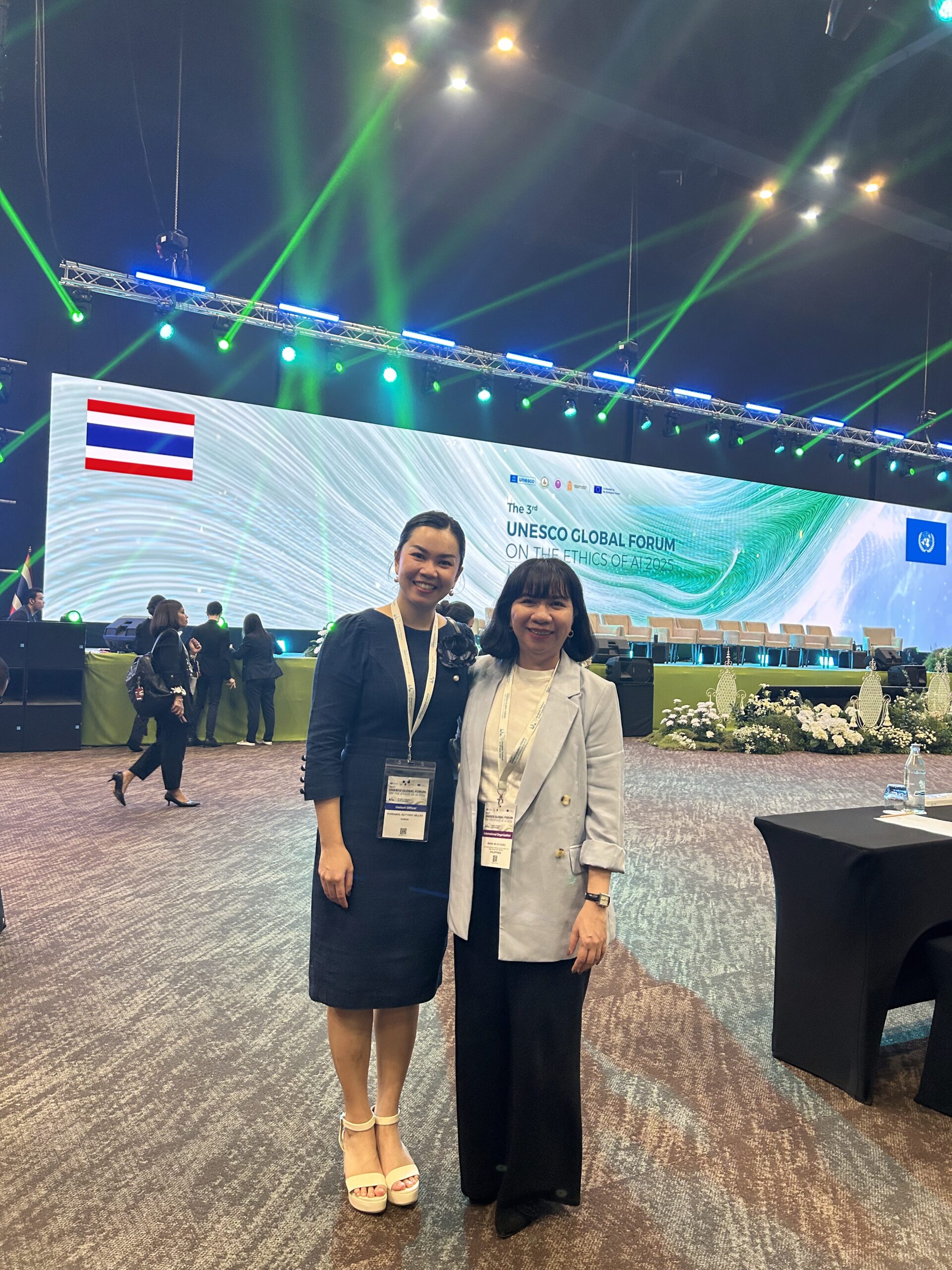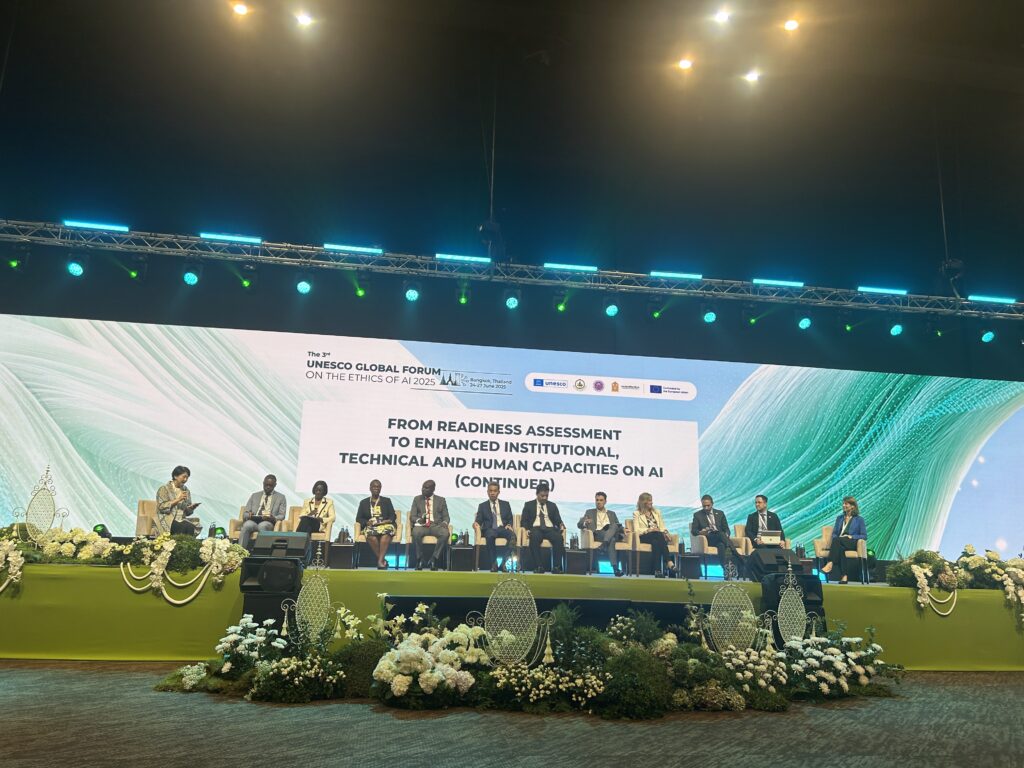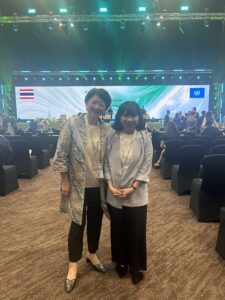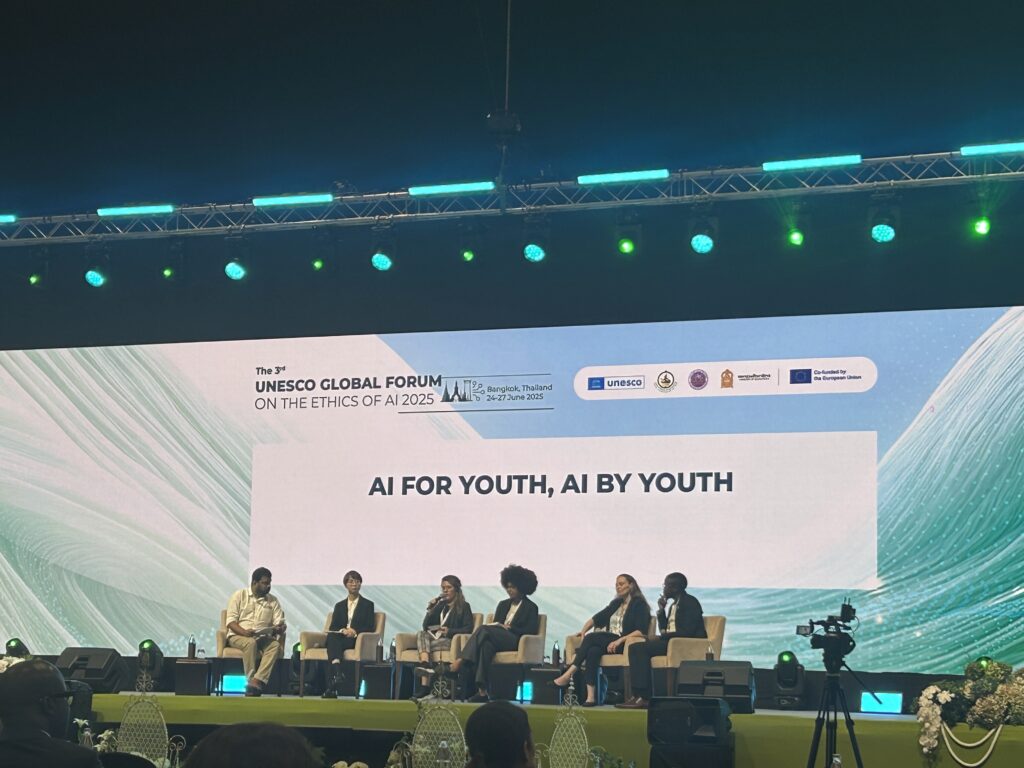ASPBAE Participates in the 3rd UNESCO Global Forum on the Ethics of AI

Organised for the first in the Asia Pacific region and co-hosted by the government of Thailand, the 3rd UNESCO Global Forum on the Ethics of Artificial Intelligence (AI) took place from 24 to 27 June 2025, in Bangkok, bringing together over 1,200 participants from 88 countries, 35+ ministers, and 13 intergovernmental bodies.
The opening ceremony was led by the UNESCO Director-General, Audrey Azoulay, and Thailand Prime Minister, Paetongtarn Shinawatra, where they emphasised the need to translate the UNESCO Recommendation on the Ethics of Artificial Intelligence into concrete national policies and ensure that AI delivers real, inclusive, and lasting benefits for all.
This Global Forum centered on advancing the adoption of UNESCO’s Recommendation on the Ethics of AI, the first and only global normative framework on AI ethics, along with the following objectives:
- Leverage the platform of the Global Forum to share the latest knowledge and insights, drawing on experiences and lessons learned in shaping AI policies and institutions.
- Facilitate discussions to inform Ministers and key decision-makers with a focus on concrete and actionable solutions.
- Support UNESCO Member States with shaping AI policies and institutions with a focus on inclusion, innovation, and skills development.
The ASPBAE Secretary-General, Atty. Helen Dabu, participated in this global event, gaining insights from the latest discourses on AI as it intersects with essential dimensions of education, gender, environment, health, disaster risk reduction, disabilities, culture, neurotechnology, quantum computing, and judicial systems.
She also took this opportunity to touch base with the ASPBAE member representative in Thailand involved in hosting this global event, Ms. Punramol Sutthirit Miller, Chief of Foreign Relations Section, Division of Strategy and Planning, Department of Learning Encouragement, Thailand Ministry of Education. At the same time, it was a good moment to reconnect with the Director of UNESCO Multisectoral Regional Office in Jakarta, Ms. Maki Katsuno-Hayashikawa, who moderated the plenary session on “From Readiness Assessment to Enhanced Institutional, Technical, and Human Capacities on AI.”

Within the 22 thematic sessions of the Global Forum, inputs from government representatives, civil society, youth, the business sector and other stakeholders from Asia Pacific, Africa, Latin America and Europe called for equitable and human-centered AI to help address national and regional challenges.

In the context-setting session on “Technology, Policy and Innovation for Good,” global leaders and experts exchanged insights on how to ensure AI works “for all of humanity.” Key takeaways from their collective inputs to guide ethical AI development include the following:
- The Core of AI Is Not Just Technical Intelligence, but Human Responsibility – Designing AI to appear human-like can lead to misunderstandings and diminish the accountability of developers. Therefore, AI should be designed to support humans, not to imitate them. Many countries have begun incorporating UNESCO’s recommendations into concrete policy frameworks.
- Ethical AI Must Be Inclusive and Leave No One Behind – AI should be grounded in empathy and non-discrimination, especially toward vulnerable groups, persons with disabilities, and marginalized communities, who must not be overlooked from the design stage. AI should learn from data that reflects diversity. Communities must be involved and benefit from the use of their own data. Most importantly, equality should be a guiding principle in the development of AI worldwide.
- Cross-Border Collaboration Is the Foundation of Sustainable AI – Speakers emphasized that the world is facing multiple, interconnected crises—economic, environmental, social, and technological—referred to collectively as the “Polycrisis.” In this landscape, siloed efforts and isolated development are no longer viable. Ethics and global cooperation are essential to respond effectively to today’s challenges.
- From “Move Fast and Break Things” to “Move Fast and Save Things” – This was emphasised by one of the speakers, Professor David Leslie from The Alan Turing Institute, as he articulated that the dominant mindset of “build fast, fix later” must evolve into “build fast, but ethically.”

The Global Forum also launched major initiatives, reinforcing UNESCO’s role as a leading convener on AI ethics. The newly established Global Network of AI Supervisory Authorities, developed in collaboration with national regulators, including the Dutch Authority for Digital Infrastructure (RDI), will share knowledge and build capacity to implement AI policies. The Global Network of Civil Society and Academia was also launched to support citizen participation in AI-related decision-making worldwide.
For more information and insights on this event, visit the UNESCO Global Forum website: https://www.globalforumethicsai.com, and ETDA Thailand facebook page: https://www.facebook.com/ETDA.Thailand.